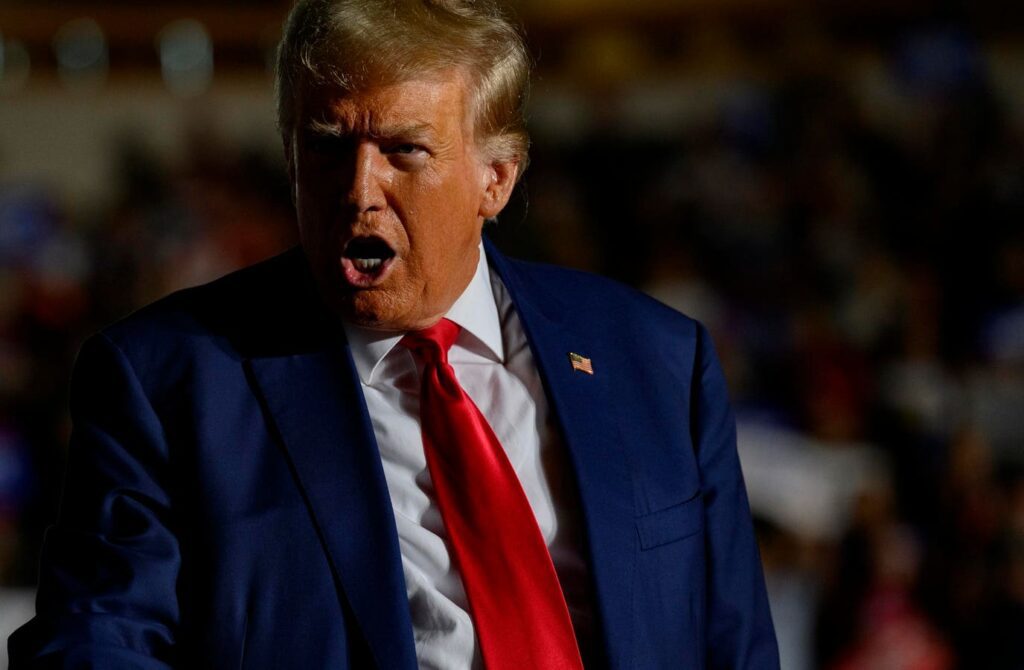Donald Trump
President-elect Donald Trump has chosen Scott Bessent, a prominent pro-crypto hedge fund manager, as Treasury secretary.
Known for his tenure as chief investment officer of billionaire George Soros and founder of Key Square Capital Management, Bessent is a staunch advocate of blockchain and digital assets.
Bessent’s appointment marks a dramatic shift from the Biden administration’s cautious regulatory stance on crypto, led by current Treasury Secretary Janet Yellen.
If confirmed, Bessent could add more clarity on regularity and implement more crypto-sector-friendly policies, potentially aimed at bringing digital assets into the financial mainstream.
Bessent’s pro-crypto file
Scott Bessent has long been a strong advocate for the transformative potential of blockchain, particularly in modernizing financial systems.
In an interview with Fox Business earlier this year, he said: “Crypto is about freedom and the crypto economy is here to stay. Crypto attracts young people, people who have not participated in the markets.
His advocacy goes beyond rhetoric. Bessent has invested in blockchain startups and decentralized finance (DeFi) initiatives, demonstrating his confidence in the long-term potential of the sector.
These positions stand in stark contrast to Yellen’s focus on crypto’s risks, such as its role in facilitating illicit activity and concerns over systemic financial stability.
Bessent’s support for cryptocurrencies aligns perfectly with Trump’s growing interest in digital assets.
During his campaign, Trump became the first presidential candidate to accept crypto contributions, a groundbreaking move that underscored his openness to digital innovation. At one point, Trump even hinted at the possibility of creating a federal Bitcoin reserve.
“For too long, our government has violated the cardinal rule that every Bitcoiner knows by heart: never sell your Bitcoin,” Trump said.
This embrace of crypto, which stands in stark contrast to the Biden administration’s more aggressive regulatory stance, has attracted crypto lobbyists to Trump as a perceived ally for the industry.
High-profile figures like Cameron and Tyler Winklevoss, co-founders of crypto exchange Gemini, contributed $1.6 million in Bitcoin to his campaign, while Kraken co-founder Jesse Powell donated of $845,000 in Ether.
A new era for cryptocurrency regulation?
Although it is not yet clear how Bessent would approach crypto policy, his most important contribution would likely be creating a clear regulatory framework for digital assets.
Over the past few years, the crypto industry has struggled with inconsistent policies and enforcement actions under the Biden administration, creating uncertainty that has stifled crypto’s mainstream appeal.
Industry insiders believe Bessent’s leadership at Treasury could provide much-needed clarity. In an article published Friday on X, Ripple CEO Brad Garlinghouse described him as “the most pro-innovation, pro-crypto Treasury Secretary we’ve ever seen.”
However, not everyone is convinced.
Critics warn that while Bessent’s hedge fund experience might make him more receptive to institutional players, retail investors and smaller blockchain companies might not benefit in the same way.
Additionally, any sweeping changes would still require approval from Congress, where bipartisan concerns about crypto’s role in fraud, market manipulation, and environmental impact remain prevalent.
A delicate balancing act
If Bessent takes the helm of the Treasury, his mandate will involve a difficult and delicate balancing act between promoting innovation and enforcing regulations.
On the one hand, he expressed confidence in blockchain’s ability to revolutionize finance, potentially integrating it with traditional systems to improve efficiency. On the other hand, the Treasury Secretary’s role requires addressing valid regulatory concerns.
Bessent’s past comments suggest a pragmatic approach.
He argued for “smart regulation” that encourages innovation without compromising oversight. Although the crypto industry has welcomed Bessent’s appointment, regulatory hurdles and political resistance remain significant challenges.




